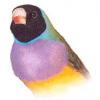Search the Community
Showing results for tags 'Reefing News'.
-
Reef-building coral communities in the Great Barrier Reef --the world's largest coral reef-- may now be calcifying at only about half the rate that they did during the 1970s, although live coral cover may not have changed over the past 40 years, a new study finds. In recent decades, coral reefs around the world, home to large numbers of fish and other marine species, have been threatened by human activities such as pollution, overfishing, global warming, and ocean acidification. This last process affects ambient water chemistry and availability of calcium ions, which are critical for coral communities to calcify, build, and maintain reefs. Comparing data from reef surveys during the 1970s, 1980s and 1990s with present-day (2009) measurements of calcification rates in One Tree Island, a coral reef covering 13 sqkm in the southern part of the Great Barrier Reef, Silverman et al. show that the total calcification rates, i.e., the rate of calcification minus the rate of dissolution, in these coral communities have decreased by 44 per cent over the past 40 years; the decrease appears to stem from a threefold reduction in calcification rates during nighttime. The authors suggest that reduced calcification, particularly during nighttime, could be caused by boring and other erosional activities brought about by a change in the type or the number of boring organisms (e.g., sea cucumbers) that live on these coral reefs. Another possibility is that warming water temperatures and ocean acidification could be causing increased dissolution of coral reefs over the past 40 years. The study is consistent with previous estimates and predictions of reduced calcification rates of coral communities in the Great Barrier Reef. Source: http://www.fis.com/f...5072&ndb=1&df=0
-
- Reefing News
- Coral Calcifying
-
(and 1 more)
Tagged with:

